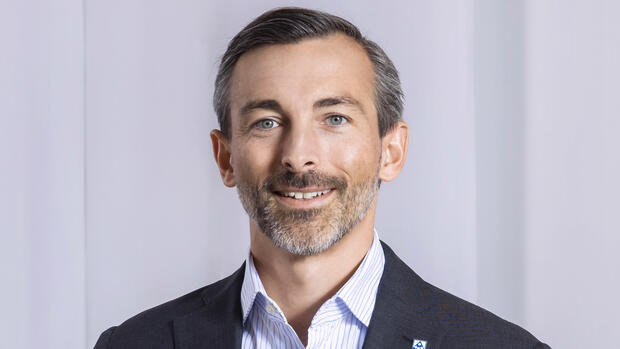The family business is suffering from the falling demand for plastic parts for cars with combustion engines.
Manheim When Raphael Wolfram talks about the automotive division, the spokesman for the board of the family company Röchling chooses drastic words. “2022 was a really difficult year, we had imagined it to be easier,” said the manager on Wednesday morning when the business figures for 2022 were presented at the company headquarters in Mannheim.
Like many medium-sized suppliers, Röchling is feeling the system change in the automotive industry towards e-mobility. For example, the plastics specialist manufactures the tank for Adblue, which is added to the diesel. According to Wolfram, there is also weak demand in Europe. The manufacturers would also work off their high order backlog very quickly. “I see dark clouds gathering over the industry here.”
In view of this, the company is streamlining its production structure in the division. A factory in Gernsbach closes at the end of the year. “If no more car production comes to Europe or is brought in, I cannot rule out further consolidation,” Wolfram made clear.
The upheaval can be seen in the sales mix of the family business. In 2021, Automotive was still just under the largest division at 1.02 billion euros, ahead of the Industrial and Medical divisions. But in 2022, the industrial business moved up to first place.
Although the car business grew by 12.7 percent to 1.15 billion euros, this is mainly due to strong demand in Asia and North America. With plastic specialties, for example for mechanical engineering, the chemical industry or renewable energies, Röchling achieved sales of a good 1.2 billion euros, an increase of 22.4 percent. The medical division increased its sales by almost 22 percent to 223 million euros.
Röchling boss: Mobility change requires openness
“At Automotive, we can now look back on four years of crisis,” said Wolfram, who is also responsible for the automotive business in addition to his role as CEO. In 2019, sales were still at 1.3 billion euros. In addition to the shift towards e-mobility, the pandemic and the supply chains that went completely out of sync as a result weighed on business after 2020. Added to this was the shortage of semiconductors and finally the Chinese government’s zero-Covid policy, which has now ended, which had led to plant closures in China.
>> Read also: Why suppliers fear the new VW austerity package
The good news: Some of the products from Röchling are also used to build electric cars. This applies, for example, to components that can be used to improve a vehicle’s aerodynamics. Very light structural parts made of plastic are also in demand. There are also covers for batteries or for the thermal management of the batteries. Last year, products for e-cars already accounted for 70 percent of incoming orders, according to Wolfram.
At the same time, the family business is investing in China. A new plant has just been put into operation there – not far from the factory of the Chinese manufacturer Nio, who is also one of the main local customers. “China is a very important market for us,” says Wolfram. They manufacture there for the local market.
In view of this, Wolfram ventures a cautious outlook. Sales in the automotive division are expected to grow slightly to EUR 1.25 billion in the current year. Part of this will continue to come from the combustion engine business. “The mobility transition needs openness,” said Wolfram. There will continue to be markets in which diesel, for example, will remain an issue.
The pressure from customers is enormous. We see this increasing. Röchling boss Raphael Wolfram
Achieving the goals will not be easy. Volkswagen has announced that it intends to reduce its costs by ten billion euros by 2026. Since then, suppliers have been concerned that Europe’s largest car company could turn the price screw on parts deliveries. “The pressure from customers is enormous. We’re seeing it increasing,” Wolfram said.
There are also new competitors. The investment company Mutares recently formed a new supplier in Frankfurt under the umbrella of Amaneos SE. It consists of several acquisitions by the company, the core area being plastic-based systems for the automotive industry. According to Wolfram, however, there are only a few overlaps with Röchling. “The headwinds for Amaneos are no less than those for us.”
Röchling turned 200 years old last year. The group emerged from a Saarland steel dynasty, which in turn has its roots in a coal dealership that Friedrich Ludwig Röchling founded in Saarbrücken in 1822. The company achieved sales of 2.2 billion euros last year, an increase of almost 18 percent. The pre-tax result was 114 million euros, after almost 80 million euros in 2021.
More: Eberspächer hopes for the final combustion engine boom
